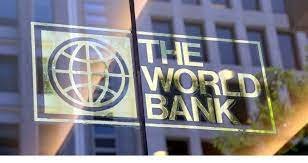The World Bank has disclosed Nigeria and some other countries opted against participating in a temporary suspension of debt-service payments due to concerns about future access to debt and credit-rating downgrades.
This was contained in the bank’s new International Debt Statistics 2022 report, which was published on Monday.
It said Nigeria had a 16 per cent increase in the non-guaranteed debt of the private sector in 2020.
“In sub-Saharan Africa, both Ghana and Nigeria recorded a 17 per cent increase in external debt stocks driven by purchases from the IMF of $1bn and $3.4bn, respectively, plus in Ghana, the $3bn pre-pandemic Eurobond issue, and for Nigeria, a 16 per cent rise in the non-guaranteed debt of the private sector,” the report said.
It said at the end of 2020, the 10 largest borrowers eligible for Debt Service Suspension Initiative, including Nigeria, accounted for $509bn external debt stock and 65 per cent of the end-2020 private non-guaranteed external debt.
It said, “There was wide divergence in the rate at which external debt accumulated in individual DSSI-eligible countries, including the group’s largest borrowers. The combined external debt stock of the 10 largest DSSI-eligible borrowers (Angola, Bangladesh, Ethiopia, Ghana, Kenya, Mongolia, Nigeria, Pakistan, Uzbekistan, and Zambia) was $509bn at end-2020, 12 per cent higher than the comparable figure at end-2019 and equivalent to 59 per cent of the external debt obligations of all DSSI-eligible countries combined.
“They also accounted for 65per cent of the end-2020 private non-guaranteed external debt of DSSI-eligible countries.”
![]()










